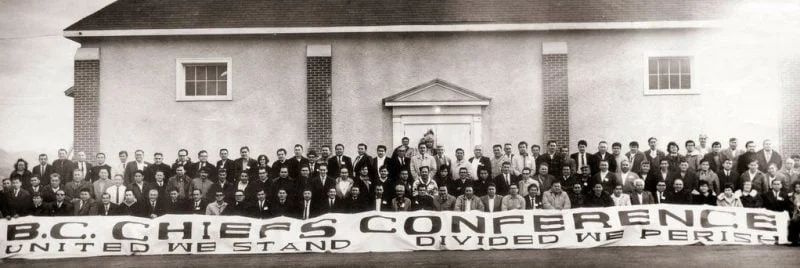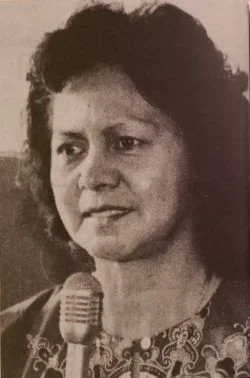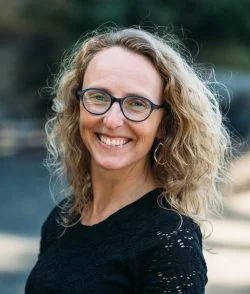#844 A pan-Indigenous enterprise
Assembling Unity: Indigenous Politics, Gender, and the Union of BC Indian Chiefs
by Sarah A. Nickel
Vancouver: UBC Press, 2019
$32.95 / 9780774837996
Reviewed by Chelsea Horton
*
 Assembling Unity is an important book. The first monograph by Tk’emlupsemc, French Canadian, and Ukrainian scholar Sarah Nickel, this historical case study of the Union of BC Indian Chiefs, a pan-Indigenous political organization that maintains a strong presence in the province today, draws on Indigenous knowledge and theory to demonstrate the processual and contextual nature of Indigenous politics. Destabilizing a deeply ingrained and disingenuous settler expectation that there exists a single, stable, and forever reactive Indigenous political stance, Nickel’s study reveals how pan-Indigenous unity was negotiated, especially by way of gender, between the founding of the UBCIC in 1969 and the sovereignty debates of the early 1980s.
Assembling Unity is an important book. The first monograph by Tk’emlupsemc, French Canadian, and Ukrainian scholar Sarah Nickel, this historical case study of the Union of BC Indian Chiefs, a pan-Indigenous political organization that maintains a strong presence in the province today, draws on Indigenous knowledge and theory to demonstrate the processual and contextual nature of Indigenous politics. Destabilizing a deeply ingrained and disingenuous settler expectation that there exists a single, stable, and forever reactive Indigenous political stance, Nickel’s study reveals how pan-Indigenous unity was negotiated, especially by way of gender, between the founding of the UBCIC in 1969 and the sovereignty debates of the early 1980s.

Assembling Unity opens on a seminal November 1969 pan-Indigenous gathering hosted by the Tk’emlúps te Secwépemc at the Kamloops Indian Residential School and proceeds thematically and chronologically. The book pushes back on periodization that tethers Indigenous political action to settler milestones. Specifically, Nickel argues that the 1969 White Paper introduced by the government of Pierre Elliott Trudeau, which proposed to eliminate treaties, the Indian Act, and unique Indigenous status in the name of a Liberal just society, was not the catalyst of Indigenous activism in Canada that it is often made out to be. Instead, Nickel situates Indigenous engagement with the White Paper, and the related growth of the UBCIC, in a deep history of Indigenous governance, political action, and pursuit of unity.


Through interviews with former and current UBCIC members from Interior British Columbia and the Southwest Coast, and archival sources, Nickel illustrates how unity was negotiated, contested, and performed by grassroots people and leadership alike. Signal processes that she considers include the founding 1969 UBCIC gathering in Tk’emlúps, the receipt and later 1975 rejection of government funding, a related month of direct action known as “militant May,” and dialogue and action concerning Indigenous sovereignty and the patriation of the Canadian Constitution in 1982.
Gender and the framework Nickel calls “new Indigenous feminisms” are fundamental to her analysis. Nickel demonstrates how grassroots women and organizations, especially the British Columbia Indian Homemakers’ Association, informed and challenged shifting iterations of unity advanced by the male UBCIC leadership. She considers the construction of Indigenous masculinities and intersections of class as well.

As good historiography does, Assembling Unity reads somewhat like entering a conversation mid-stream. This lends the book an apt tone of urgency, but also means that readers unfamiliar with the terrain may struggle somewhat to find their footing. The Indigenous theories of recognition and refusal (the former emerging from the work of Yellowknives Dene political theorist Glen Coulthard and the latter from Mohawk anthropologist Audra Simpson) that Nickel engages and expands, for example, would benefit from further elaboration. Likewise, the category of “Indian status.” Nickel is intentional in choosing not to centre settler colonial constructs like this — an approach that she and historian Amanda Fehr extend in a new co-edited volume on Indigenous feminisms.[1] Given how acutely (in)access to Indian status informed Indigenous women’s politics of unity, however, some earlier and succinct attention to status would be helpful.
Assembling Unity: Indigenous Politics, Gender, and the Union of BC Indian Chiefs prompts fruitful lines for future inquiry, too, including relationships between the UBCIC, the United Nations, and the articulation of global Indigenous rights.
Sarah Nickel’s timely study of the Union of BC Indian Chiefs was shortlisted for the Canadian Historical Association’s 2020 Best Scholarly Book in Canadian History Prize and was recently announced the winner of this year’s CHA Indigenous History Book Prize. Both accolades are much deserved.
*

Chelsea Horton is an historian and educator of settler heritage, with a PhD in Indigenous history from the University of British Columbia, who works at the intersection of academic and applied histories. Based in Snaw-Naw-As territory on Vancouver Island, her primary areas of practice are research and teaching related to Indigenous rights and title; Indigenous knowledge, land use, and occupancy; and settler colonial histories and their cumulative effects in Canada. Chelsea also has a longstanding interest in histories of religion and reconciliation. She is a co-editor (with Tolly Bradford) of Mixed Blessings: Indigenous Encounters with Christianity in Canada (2016) and a contributor to an upcoming volume on religion and irreligion in the Pacific Northwest. You can find her at her website.
*
The Ormsby Review. More Books. More Reviews. More Often.
Publisher and Editor: Richard Mackie
The Ormsby Review is a journal service for in-depth coverage of B.C. books and authors. The Advisory Board consists of Jean Barman, Robin Fisher, Cole Harris, Wade Davis, Hugh Johnston, Patricia Roy, David Stouck, and Graeme Wynn. Scholarly Patron: SFU Graduate Liberal Studies. Honorary Patron: Yosef Wosk. Provincial Government Patron since September 2018: Creative BC
“Only connect.” – E.M. Forster
Endnotes:
[1] Sarah Nickel and Amanda Fehr, eds. In Good Relation: History, Gender, and Kinship in Indigenous Feminisms (Winnipeg: University of Manitoba Press, 2020).